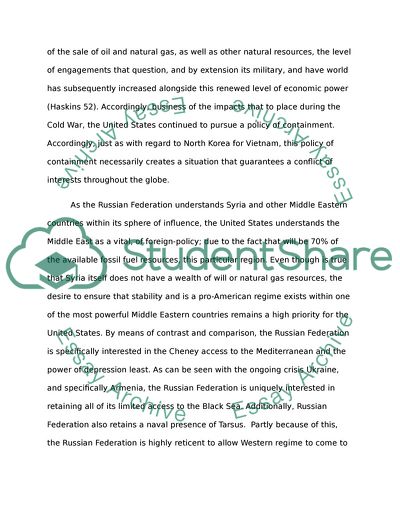Cite this document
(The Outcome of the Ongoing Syrian Conflict Coursework Example | Topics and Well Written Essays - 2000 words, n.d.)
The Outcome of the Ongoing Syrian Conflict Coursework Example | Topics and Well Written Essays - 2000 words. https://studentshare.org/politics/1822786-syrias-conflict
The Outcome of the Ongoing Syrian Conflict Coursework Example | Topics and Well Written Essays - 2000 words. https://studentshare.org/politics/1822786-syrias-conflict
(The Outcome of the Ongoing Syrian Conflict Coursework Example | Topics and Well Written Essays - 2000 Words)
The Outcome of the Ongoing Syrian Conflict Coursework Example | Topics and Well Written Essays - 2000 Words. https://studentshare.org/politics/1822786-syrias-conflict.
The Outcome of the Ongoing Syrian Conflict Coursework Example | Topics and Well Written Essays - 2000 Words. https://studentshare.org/politics/1822786-syrias-conflict.
“The Outcome of the Ongoing Syrian Conflict Coursework Example | Topics and Well Written Essays - 2000 Words”. https://studentshare.org/politics/1822786-syrias-conflict.


